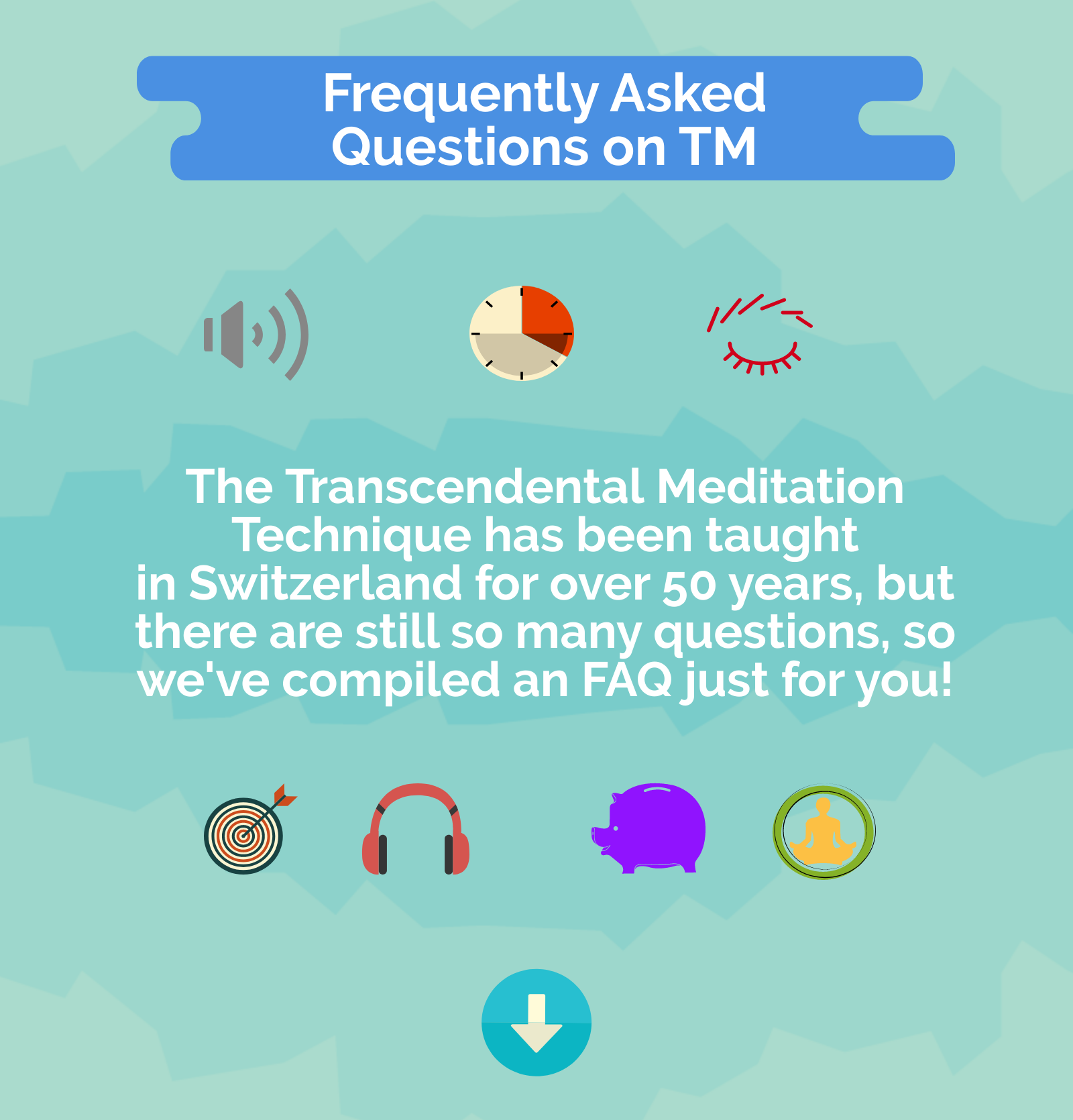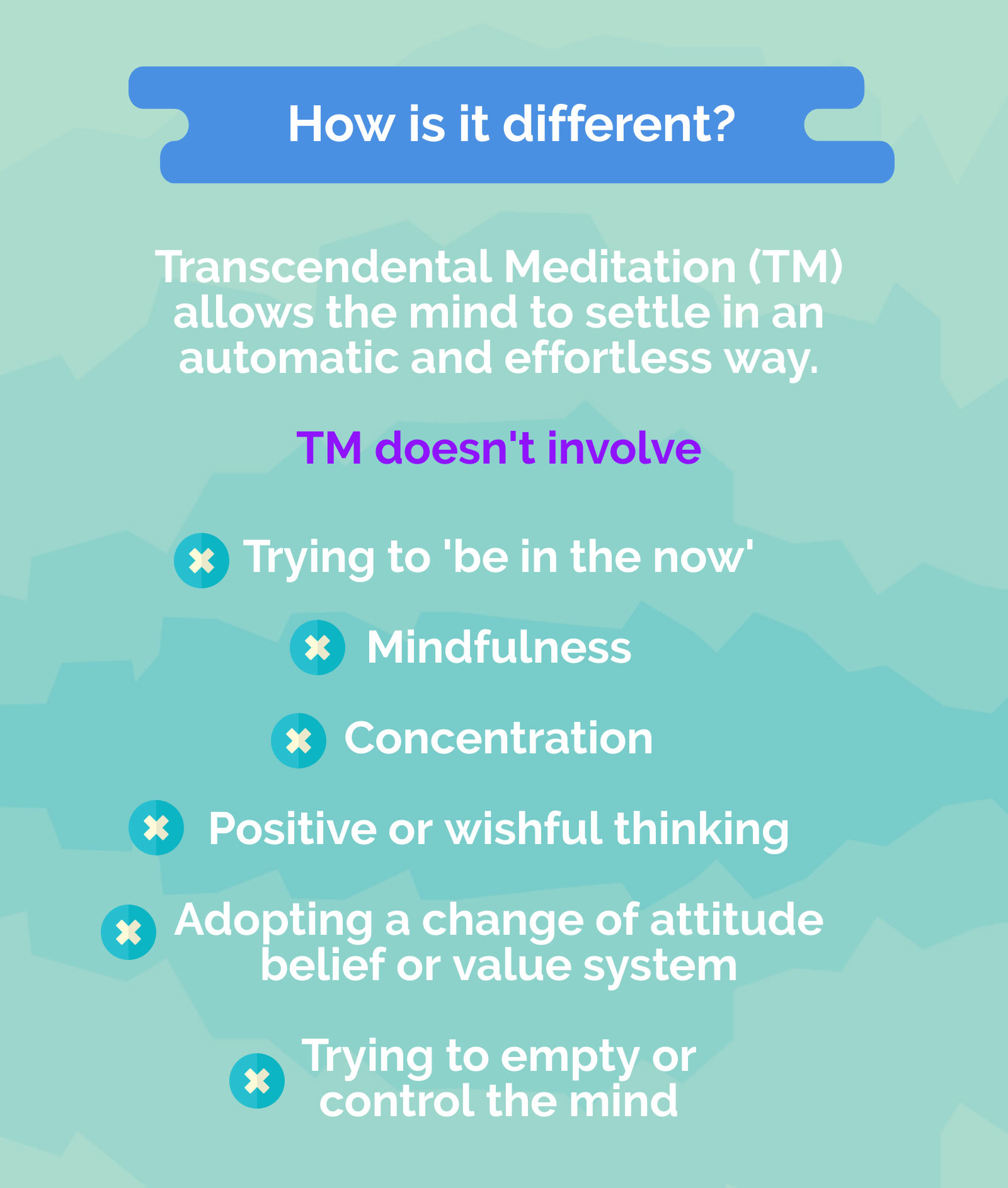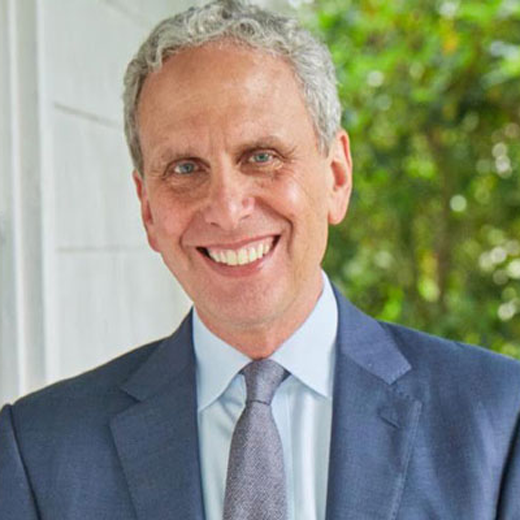₣ Do I need to pay for regular meditation classes?+
A one-time tuition fee is charged for TM. You only need to learn once and then you have it for life.
You can practice and benefit from TM at any time, anywhere, without getting any help or guidance from anyone else. You learn over 4 days, and after that you carry it inside yourself everywhere you go. If you want a tune up you can contact any TM Centre in the world and attend events worldwide.
In short, TM is a great way to invest in yourself! You'll reap the benefits of a calmer, more creative, more energised life.
△ Is meditating only about mental health?+
TM certainly helps to release mental stress and tension. But it's clear that a very high proportion of doctor visits are for problems which may be physical in their expression, but which are psychosomatic, or stress-related, in origin.
TM is scientifically shown to be helpful in the prevention and treatment of many of these stress-related health problems.
☯ Will there be a meditation during the free intro talk?+
TM instruction is not offered during the intro talk because learning is a personal, one-to-one experience.
Following the talk there will be an opportunity to meet privately with the teacher to discuss personal considerations. Attending an intro does not commit you to learn - it's an opportunity to find out more about the benefits and answer any questions you may have.
♫ Should I listen to a meditative music during TM?+
Music directs attention outward. In contrast, TM directs the attention inward, to the source of thought, so there is no need to listen to meditation music.
During TM the mind experiences quieter levels of awareness, spontaneously. A secondary factor such as music interferes with this process, and will hinder the mind's natural tendency towards inner silence.
⦾ Should I focus on the chakras during meditation?+
TM does not require any focus. The effortless simplicity of the practice is what gives it such effectiveness and power. Focus implies effort, and techniques that involves effort will serve only to keep the mind busy and active. Instead, by using the natural tendency of the mind, TM gives a profound state of rest to mind and body, and it is this universal experience that enlivens all the different energy centres in the body.
⬢ Do I need to stop medication when I start meditating?+
No. In fact we specifically recommend that you continue with any treatment prescribed by your doctor until he recommends that you stop.
Over time, with regular meditation, you may find the need for medication is gradually reduced.
◍ Do I need to control my breath while meditating?+
No, during TM you don't need to control your breathing. You do not need to try to relax. TM is effortless. No concentration is required.
When the mind settles down with TM, the body also automatically settles down. This naturally causes more refined breathing.
During TM we dive into our natural, inner silence. Our busy minds gradually become quieter. This in turn has an effect on our body - breathing can slow down by 40%. This slowdown in breathing comes from changes in the frontal cortex functions in the anterior part of the brain. This effect of TM is natural and spontaneous - it requires no effort.
☺ Do I have to meditate in lotus position?+
TM is practiced in any sitting position you find comfortable. Most people sit comfortably on a couch or chair. It's not important to sit in the lotus position but it is important to be comfortable. TM is a technique for your mind, it's not a body posture.
















